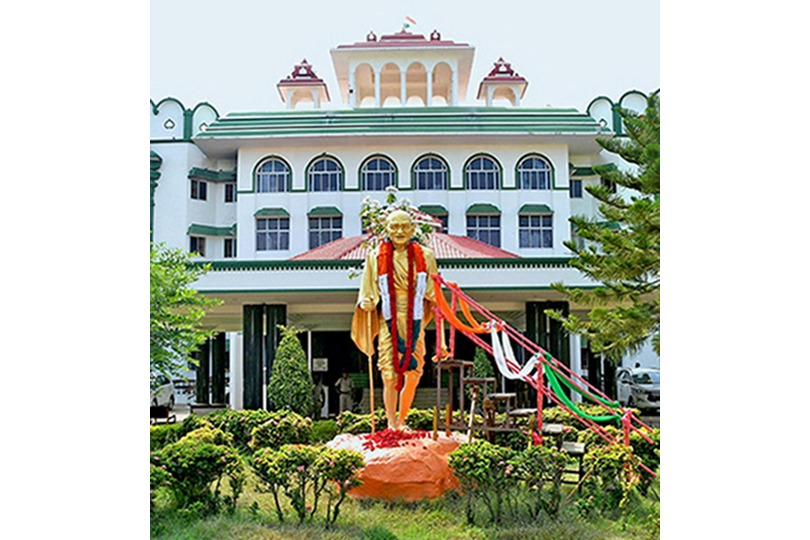Central Institute of Classical Tamil to Distribute 45 ‘Sanga Illakkiya Noolgal’ and ‘Thirukkural’ books in Braille Format
on Oct 20, 2022

The Madurai Bench of the Madras High Court applauded the measures taken by authorities after learning that the Central Institute of Classical Tamil, Chennai, would provide 45 copies of "Sanga Ilakkiya Noolgal" and "Thirukkural" in Braille format free of charge to people who are blind or visually impaired.
It was reported before the division bench of Justices R. Mahadevan and J. Sathya Narayana Prasad that 75% of the work had been finished and would be finished by the end of December.
The books would be delivered to visually impaired people, per communication from the director of the Tamil Development Department, if they sent a copy of their identity card and the necessary information to the director of the Central Institute of Classical Tamil (CICT), Chemmozhi Salai, Perumbakkam, Chennai -600 100, Tamil Nadu.
The court was considering a public interest litigation case filed in 2018 by P. Ramkumar of Madurai, a lawyer who is blind, asking the State to publish Thirukkural in Braille in both Tamil and English.
The court stated: "We are at a time of a global 'book famine,' which implies that persons with 'print impairments,' including the visually impaired, do not have access to books and printed works in an accessible format."
The Marrakesh Treaty, according to the court, was adopted to make it easier for those who are blind, visually impaired, or have other print disabilities to access published works. The Marrakesh Treaty emphasizes the need to remove intellectual property (copyright) hurdles as well as the lack of books that are accessible to people with disabilities and the need to do so to end the "book famine."
The justices stated that the public interest litigation petition illustrated a lack of books for the visually handicapped, including Thirukkural in Tamil and English in Braille.
The State claimed that the Braille edition of Thirukkural and related materials were readily accessible on the market in a counter affidavit. The National Institute for the Empowerment of Persons with Visual Disabilities (Divyangjan) was cited as the appropriate organization having the ability to provide Thirukkural in Braille for free distribution.
Additionally, it was claimed that the State has made every effort to promote and propagate Tamil literature, notably Thirukkural, through the Tamil Development Department. Seven-volume Thirukkural in Braille in Tamil and English was published by the Indian Association for the Blind in Chennai and Madurai, and it was being sold at a discounted price of 1,960 rupees. The audio version of Thirukkural was offered for sale by several other businesses. The Braille book was available for free distribution through the Divyangjan Regional Center.
There can be no denying that Thirukkural, a sacred book like the Bible and the Quran, has been translated into more than 90 languages and is acknowledged as being universally applicable to daily life in every field. It is regarded as the crown jewel of moral systems that include all facets of life. The judges noted that it is also known as true remarks.
The judges noted that Thirukkural imparted morality and wisdom, and they gave the go-ahead to widely publicize the availability of Sangam literature and Thirukkural in Braille in Tamil so that people who are blind or visually impaired can read, recite, comprehend, and appreciate the splendor and culture of this land.
The justices ruled that the petitioner was allowed to contact the CICT to get a free copy of Thirukkural in Braille as well as other literature.

.jpg)
.jpg)
.jpg)
.jpg)
.jpg)
.jpg)

.jpg)

.jpg)
.jpg)

.jpg)
.jpg)
.jpg)
.jpg)










Sorry! No comment found for this post.